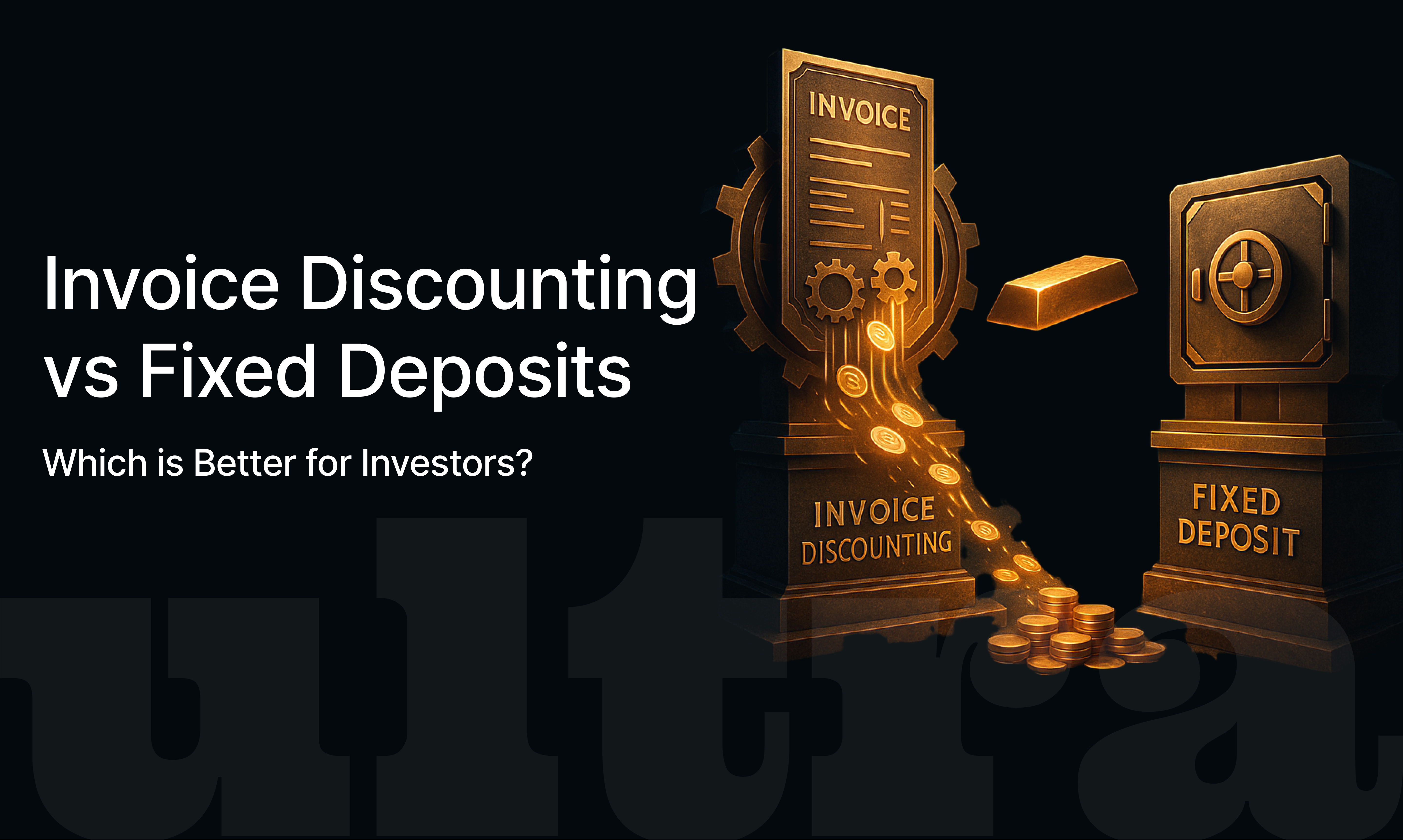Invoice Discounting vs Fixed Deposits: Which is Better for Investors?
26 August 2025 · Sachin Gadekar
Learn key differences in returns, risks, and liquidity to choose the right investment.

What is Fixed Deposit (FD)?
A Fixed Deposit is a savings scheme offered by banks and NBFCs where you deposit a lump sum for a fixed tenure at a pre-decided interest rate. At maturity, you receive the principal amount plus interest.
Safety: Considered one of the safest investment options.
Returns: Usually in the range of 5%–7% per annum.
Liquidity: Withdrawal before maturity may attract penalties.
What is Invoice Discounting?
Invoice Discounting is an investment model where investors fund businesses against their unpaid invoices. Once the business receives payment from its customer, the investor gets back the principal plus interest.
Returns: Generally 10%–20% annualized (depending on deal and risk).
Tenure: Short-term, ranging from 30 to 120 days.
Risk: Slightly higher than FDs, as returns depend on invoice repayment.
Invoice Discounting vs Fixed Deposits
| Feature | Invoice Discounting | Fixed Deposits |
|---|---|---|
| Returns | 10%–20% annualized | 5%–7% per annum |
| Tenure | 30–120 days (short-term) | 1–10 years |
| Liquidity | High – principal + interest after invoice payment | Low – premature withdrawal penalties |
| Risk | Moderate – depends on invoice repayment | Very low – backed by banks/NBFCs |
| Suitability | Investors seeking higher short-term returns | Conservative investors preferring safety |
Why Choose Invoice Discounting Over Fixed Deposits?
Higher Returns: Invoice discounting offers nearly 2–3x higher returns than FDs.
Short Tenure: Investors don’t need to lock in funds for years.
Portfolio Diversification: Balances traditional low-risk FDs with high-yield assets.
Why Choose Fixed Deposits Over Invoice Discounting?
Safety First: Zero default risk when placed with scheduled banks.
Predictable Income: Returns are fixed, irrespective of market conditions.
Simple Investment: No need to assess business or invoice risks.
Final Thoughts
Expert Take
If you are a risk-averse investor, FDs remain a reliable option.
If you are an HNIs or retail investor seeking better short-term returns, invoice discounting can be a smarter choice when done via trusted platforms like Ultra.
Conclusion
Both Fixed Deposits and Invoice Discounting serve different purposes. While FDs ensure capital protection and steady income, invoice discounting offers superior returns with short lock-in periods. The ideal investment strategy is to balance both – using FDs for security and invoice discounting for higher returns.
At ultra, investors get access to carefully vetted invoice discounting opportunities, ensuring a balance between risk and reward.
FAQs
1. Is invoice discounting safer than fixed deposits?
No. FDs are safer as they are backed by banks. Invoice discounting carries business risk but offers higher returns.
2. What is the return difference between FD and invoice discounting?
FDs offer 5%–7%, while invoice discounting offers 10%–20% annualized returns.
3. Can I invest in both FDs and invoice discounting?
Yes. Combining both helps diversify and balance risk with returns.
4. What is the minimum investment in invoice discounting?
It varies by platform. At Ultra, investors can start with lower ticket sizes, making it accessible.